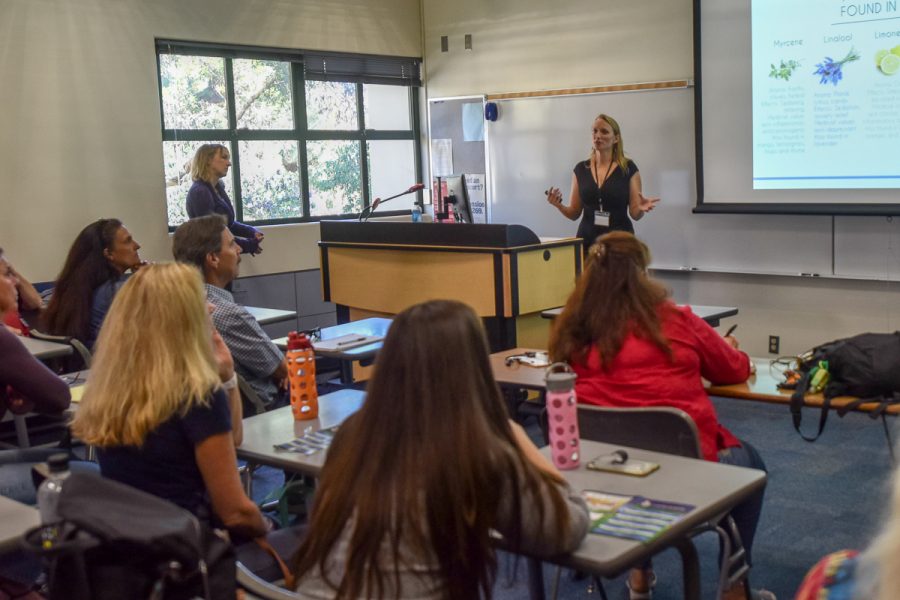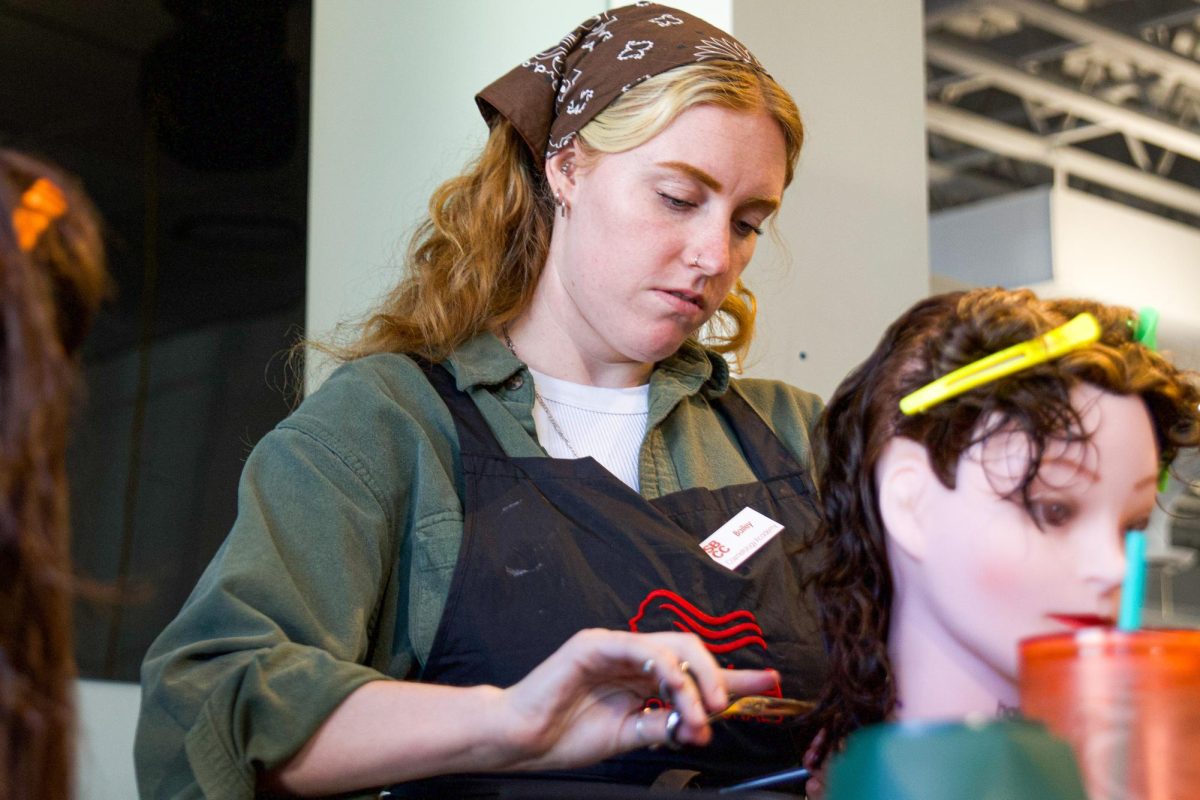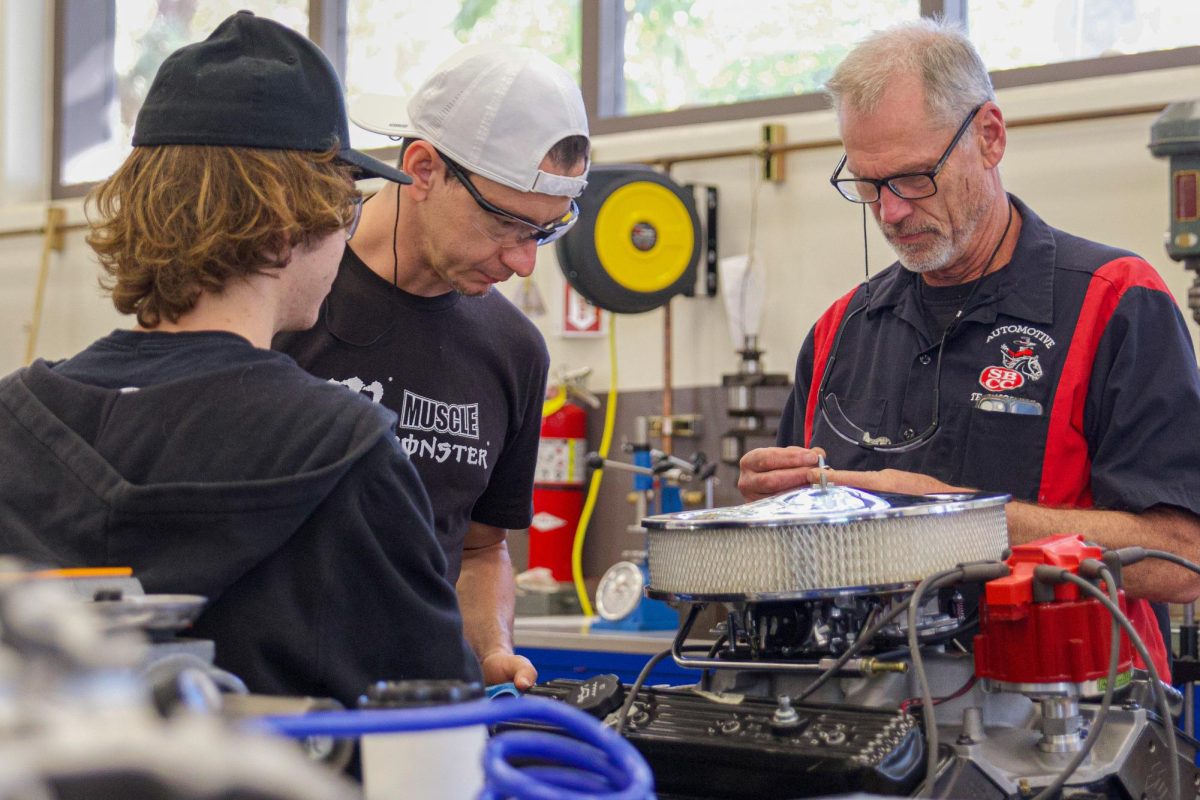The Plant Food and Medicine Conference was held Saturday on City College’s West Campus Lawn, a conference which discussed the benefits of eating a plant-based diet to improve one’s lifestyle and cure various ailments.
One of the speakers, Liz Rogan, spoke of the benefits of two of the main chemicals found in cannabis, THC and CBD. Working in the medical cannabis field for 15 years, Roger had plenty of advice for potential cannabis users. She spoke in-depth about the effect that cannabis has in the body, as well as how to properly grow and cultivate it.
Rogers also debunked several popular myths about cannabis.
“I do not believe that CBD can cure cancer,” she said, referring to a popular internet myth that taking a certain amount of CBD will kill cancer cells.
She added that much of evidence for the medicinal properties of cannabis are anecdotal, in large part because laws are in place that prevent much research from being done on its potential medicinal uses.
Although so much of the potential medicinal properties of cannabis Roger has heard about are anecdotal, one of the main reasons she became involved in the medical cannabis industry was because she heard about these anecdotes so frequently.
“It’s phenomenal,” she said. “We have a lot of people who use this for extreme pain that haven’t had anything else work as well.” She added that isolating a part of the plant by using just CBD or THC could make it lose its other valuable properties.
“…As the laws change, people need to know what [cannabis] is and how to use it properly,” she said.
Another speaker at the event was Cheryl Fromholzer, a western herbalist. She spoke about the benefits of using herbs for nutrition and wellbeing.
After giving a quick disclaimer that her advice was not medical, saying herbs were not a replacement for medical treatment, she explained why she became a herbalist.
“I am passionate about turning people on to the power of herbs,” she said. She said that locally-sourced herbs hold the most value, as they are less harmful to the environment and offered the most protections from local viruses.
She said she believes many people aren’t aware of how many benefits there are to using herbs.
“I think it’s important to inform people of the medical benefits,” she said. “We used to have a relationship with plants, and now people don’t even grow their own food.”
She listed several types of local herbs, like Oats, Chickweed, Rose-hip, and Stinging Nettle. She also pointed out various ways to ingest the herbs, warning about some of them having a poison in them that causes a stinging sensation if not prepared properly.
The most popular way to ingest herbs is to make an infusion out of them, or tea. She advised the audience to dry their herbs before putting them in boiling water, then to let them steep for at least 24 hours.
Fromholzer expanded on various methods of harvesting herbs she described as the most ethical, like never taking more than 10 percent of the herbs available, as well as asking permission from the plant before picking it.
Although the event was only hosted for a day, there is a plethora of information on the conference’s website about upcoming events and more ways to live a plant-based life.
Correction: Nov. 2, 2018
This story includes a correction to a previous version.














